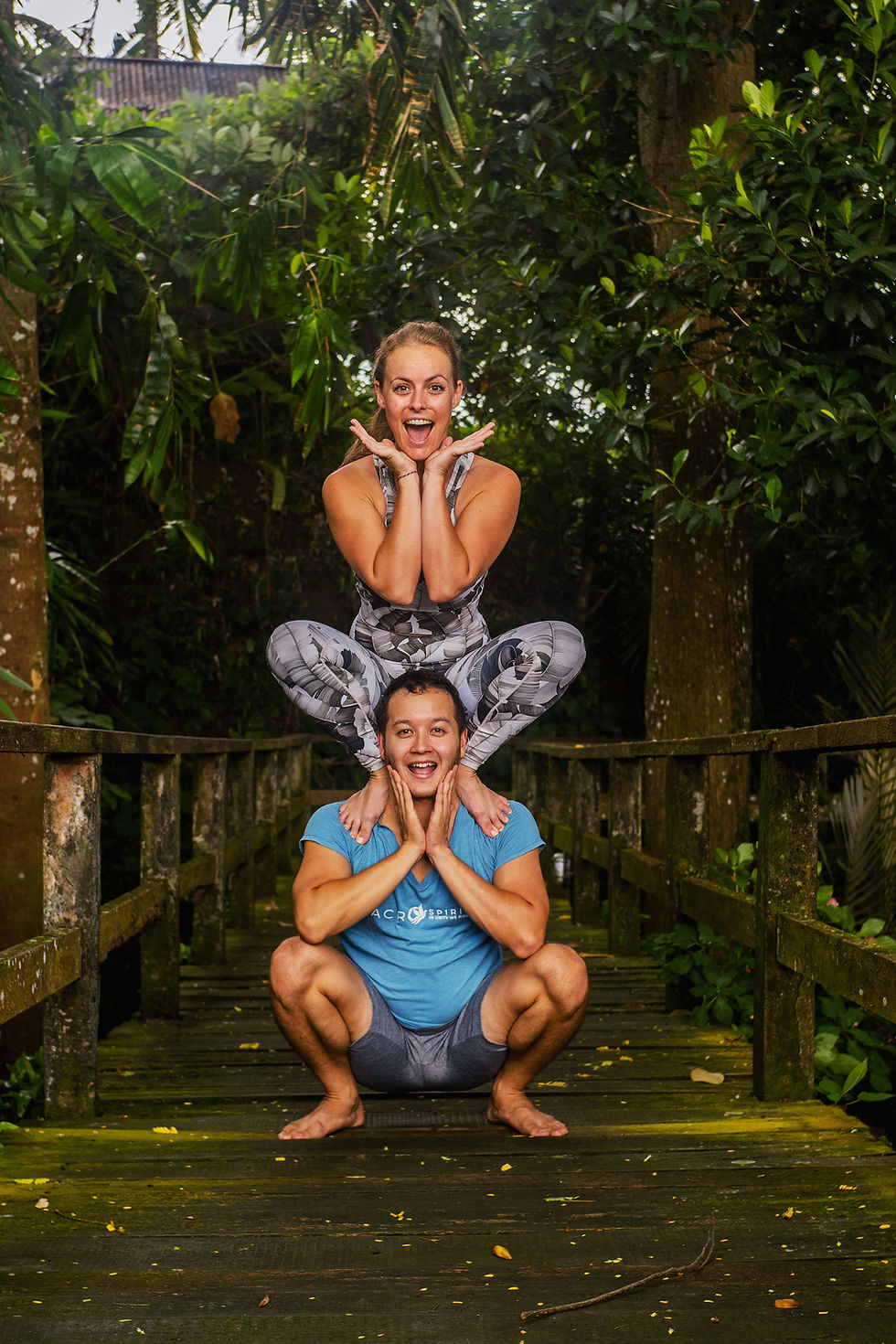Can EMOTIONS and Your Mental State impact your Acroyoga practice???
- Caspian Burrell

- May 11, 2022
- 3 min read

Where's Your Head and Heart at when you train?
I thought it might be valuable to write about the topic of emotions and mindset when it comes to acro practice and training.
It's something that has been having an impact on my trainings recently.
I think the first point is pretty straightforward, that if you're not feeling your best emotionally or mentally it will have an impact on your acro practice.
Maybe it affects your focus, or your enjoyment, or your communication with others.
Whether you know it or not it will have some impact.
Because our body, mind and emotions are all very interconnected.
So if you agree with me that your emotional and mental state is important, then the questions come...
What can you do to improve that?
What should you do if you're not in a good head or heart space when coming to acro?

In my experience, the first and foremost thing that can help is having a bit of a check-in or communication with your acro partner, or those you are playing with.
Just by sharing, letting others know that you aren't at your best today can help relieve some of the pressure/expectation both internally and externally.
Also if you do this and hopefully those others are supportive and listen that can also just help you to feel better already.
If an acro partner I am working with is not feeling great in some way I will always try to support them, comfort them, and for me their feeling and wellbeing is far more important than acro in that moment.
So I personally will always value taking a moment to stop the practice and just talk and take some time to support them in whatever they are feeling.
If I am for example planning to train with Laura but one of us really doesn't feel in the right headspace for it, then we will skip training, or we might discuss and agree to go try and if it's not good stop.
This approach always seems to help and works well.

Which I think highlights the key point for me which is expectations and pressure.
Often in my experience most of the negative emotions, and feelings that can happen in an acro session come from expectations or pressure in some way.
That is, excluding the occasional bad things like nasty communication, a bad fall etc.
If you are approaching an acro session with huge expectations to train and unlock the next cool tricks, and then when it comes to the training session and either you or your training partner are not feeling great, it can be very difficult to reach those expectations.
It's of course great to have goals, focus and motivation. But I have found that releasing some of the expectations and pressure of what we would like to happen in an acro session, can help it be more relaxed, fluid and fun.

And linked to this last point, if you're not feeling at your best consider whether you want to still do a training session, or maybe communicate and adjust the session plan.
Instead plan to have a fun acro play session, or do some fun connection games and exercises instead.
If you start like this and it actually picks your mood up and makes you feel better, you then might go on to have a productive and valuable acro session.

Whereas if you're not feeling great and force it and just try to push through and drill the advanced skills you have planned, it may end up being demotivating and frustrating.
As I'm writing this, I am very aware that I still need to learn from my own advice, haha.
I am often too focused on the new skills and training hard, and sometimes it leads to frustration or disappointment.
So I too will be trying to implement my own advice going forwards!
One phrase commonly in acro relating to this topic, which I think is a good one is...
"If it's not fun, it's not right."



Comments